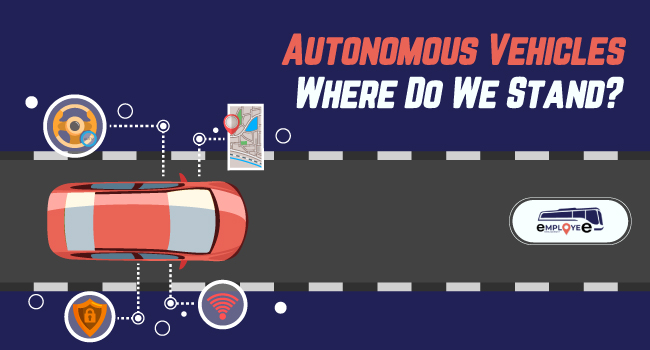It is now and happening. Fully autonomous cars will soon be out of the garage. Many companies are striking a deal with Aurora Innovations; a venture co-founded by Chris Urmson and will soon introduce Autonomous vehicles to the market. Urmson says “The planned autonomous vehicles will include fully self-driving pods, shuttles or delivery vans and self-driving trucks without a cabin”. Aurora has signed deals with both Volkswagen and Hyundai and will soon launch autonomous vehicle in about three years.
Volkswagen and Hyundai are to bring out more than 15 million vehicles every year and are planning to integrate Aurora’s software and sensors which is an artificial intelligence technology. This will change the way we look at transportation.
How does the technology work?
Toyota has installed a technology called LIDAR which uses lasers to determine its surroundings. Just like the principle of a bat or sonar, the lasers shoot out, hit the objects around and bounce back to the sensors to determine the surrounding. The technology works by combining software and sensors to control, navigate, and drive the vehicle. Based on these, the vehicle creates an internal map of the surroundings and the software process these inputs and decides on a path and sends information to the actuators which control the steering, acceleration, and braking.
What renders a feeling of safety is that it uses hardcore codes, predictive modeling, and can know the difference between a truck and motorcycle. These help the vehicle to follow traffic and navigate through obstacles. Humans are great drivers, but on the contrary, machines are better at following rules.
Where we are now?
Companies like Mercedes, BMW, and Tesla already have several autonomous vehicles with self-driving features. Google has a self-driving car project called Waymo that hit the streets in 2009 and claims to make driving less stressful and roadways safer. Car making giants Volkswagen and Hyundai say their self-driven cars will be out on roads by 2021. Volkswagen Chief Digital Officer Johann Jungwirth says that it is part of “the reinvention of mobility and the automobile.”
Read Also: “Will Employee Satisfaction and Corporate Transport Management Go Hand-in-Hand”
Volkswagen said that it would be associating with Silicon Valley Company Aurora to create self-driven cars and hopes to launch a fleet of cabs in the streets by 2021. “With Aurora, VW gains access to an experienced and globally leading development team in software and hardware for driverless vehicles,” the Wolfsburg-based group said in a statement.
What do they mean to the future of transportation?
Soon our roads will be swarming with vehicles that don’t have a driver to maneuver it. It is estimated that by 2020 almost 10 million cars will be on the road. While looking out for any pedestrians or obstacles, these autonomous vehicles can detect road signs, follow traffic signals and keep track of other vehicles with the use of video cameras. We can imagine people and goods being traveled around without a driver. You choose the destination and sit back and relax and even drink a cup of coffee while you are on the run. Trucks will be delivering goods to the destination in no time as the driver needn’t take rest in between. But a negative impact of this is that many drivers will lose their jobs. Although at present the trucks are not fully automated but have facilities similar to an autopilot function in an airplane.
Dubai has recently tried out an air drone in collaboration with Volocopter. The mission is to call an air taxi just like you would book a ride in Uber. Amazon is been given a patent to try out drones that can deliver in 30 minutes and even recharge itself by connecting to an electric car.
Conclusion
Autonomous Vehicles are the future of automotive industry. Even though we have seen a vivid image of them in movies, in reality, we are far behind. But we are we on the right track. Keep in touch with us to the latest updates that are happening in the autonomous vehicle industry.

